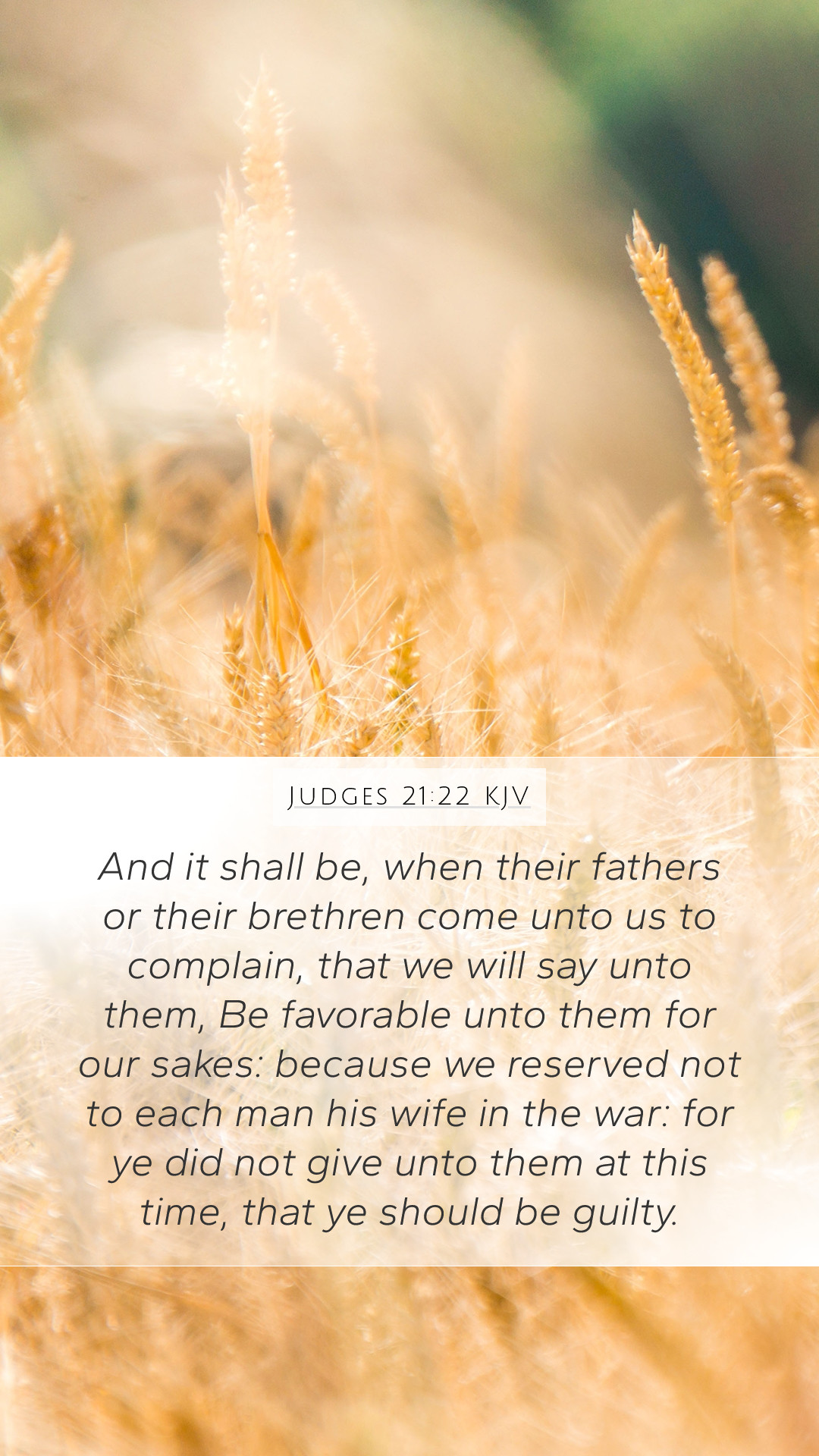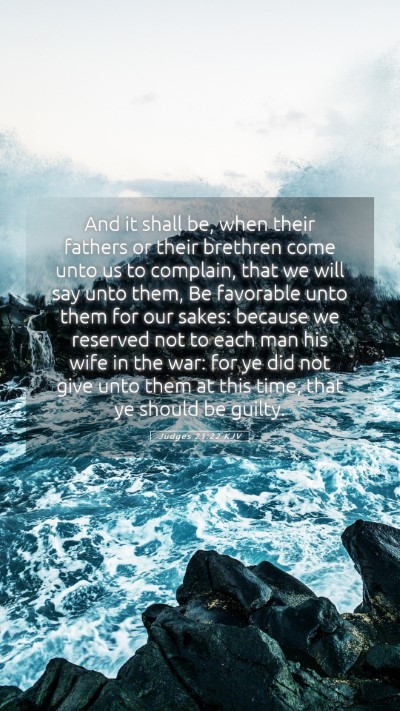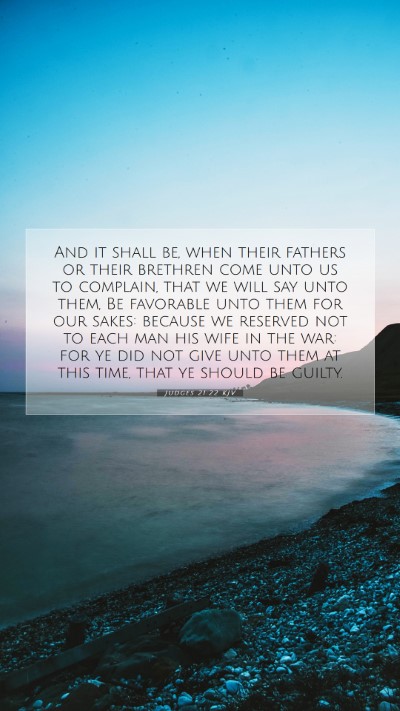Understanding Judges 21:22 - A Comprehensive Analysis
Verse: Judges 21:22 - "And it shall be, when their fathers or their brethren come unto us to complain, that we will say unto them, Be favorable unto them for our sakes: because we reserved not to each man his wife in the war: for ye did not give unto them at this time, that ye should be guilty."
Context and Background
The Book of Judges chronicles a turbulent period in Israel’s history characterized by cycles of sin and redemption. Specifically, Judges 21 deals with the aftermath of a civil conflict against the tribe of Benjamin, where the other Israelite tribes sought to resolve the population crisis among the Benjaminites, who had lost many men in a war against Israel.
Verse Explanation and Commentary
- Loss and Restoration: The passage reflects on the loss of life and how to ensure the continuation of the tribes, particularly Benjamin. Matthew Henry emphasizes the severity of the situation and the desperate measures the Israelites took to preserve the tribe's lineage.
- Compassionate Negotiation: The phrase "be favorable unto them" indicates a call for compassion in negotiations. Adam Clarke notes the evolving dynamics of inter-tribal relations during this turbulent time, showcasing the need for understanding and kindness amid conflict.
- Guilt and Responsibility: The acknowledgment of guilt is significant. Albert Barnes outlines how the Israelites recognized their role in the plight of the Benjaminites, emphasizing their duty to rectify the wrongs done through war, which aligns with broader themes of justice and communal integrity.
- Divine Providence: This passage hints at the belief that God ultimately oversees Israel's fate, suggesting that even in dire situations, there may be a path to restoration that aligns with divine will, as discussed in various Biblical commentaries.
Theological Implications
This text illustrates significant themes relevant to contemporary readers:
- Community Responsibility: The interactions between the tribes highlight the essence of collective identity and how individual actions impact the larger community.
- Reconciliation Efforts: The willingness to negotiate and seek favorable outcomes teaches about the importance of seeking peace and making amends after conflict.
- Covenantal Relationships: The relationship among the tribes can be viewed through the lens of covenantal theology, where each tribe has obligations toward the others.
Application to Modern Life
Judges 21:22 provides insight into how we can approach conflicts and relationships today:
- Conflict Resolution: This verse encourages thoughtful dialogue and compassion when resolving conflicts, reminding us of the importance of empathy in today’s divisive culture.
- Understanding Our Role: Recognizing our part in communal issues echoes the call for personal responsibility in addressing social grievances.
- Seeking Reconciliation: The enduring human struggles with forgiveness and peace are highlighted, urging individuals to strive for resolution rather than revenge.
Cross References
- Judges 11:30-31 - Jephthah's vow and its ramifications.
- 1 Samuel 15:14 - The consequences of collective actions in leadership.
- Galatians 6:2 - Bearing one another's burdens as a form of spiritual law.
Conclusion
Judges 21:22 is a profound example of how Biblical text weaves together themes of conflict, accountability, mercy, and reconciliation. Understanding this verse requires a holistic view that incorporates historical context, theological reflection, and practical application, making it essential for Bible study groups and individuals seeking deep biblical insight.


